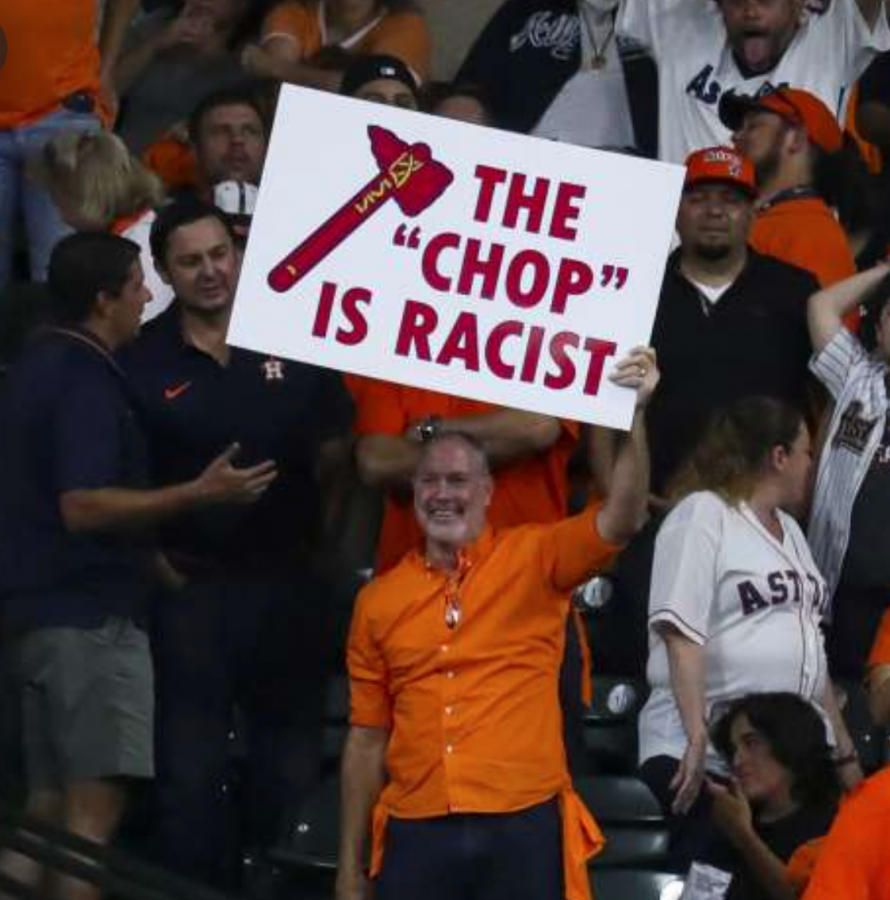Wildcats Wrestle With the Chop Controversy
For the first time in twenty-six years, the Atlanta Braves battled through the World Series, beating the Astros 4-2. As World Champs, the Braves have received more attention than usual, allowing the Tomahawk Chop controversy to resurface. ESPN says it’s time for the Atlanta Braves to move on from the chop.
Understandably, the bliss of success reduced most Braves fans concern over the chop. Westminster students and faculty have varying opinions on the gesture. “I do not find the physical act of the cheer offensive,” explains Westminster Varsity Baseball coach Chad Laney, “but I can see where some would find the name ‘Tomahawk Chop’ offensive as it portrays an entire culture in a singular focus, in this case highlighting a certain people’s tool of war and not shedding light on more productive elements of their culture.”
The energized and unified atmosphere that the chop creates pushes fans to continue doing it. “As a sports fan, I find it to be an effective rallying cheer for teams to know that their fans are supporting them,” says Laney. “In an environment of 50,000 + people, the chanting in unison can be intimidating to an opposing team and empowering to the home team, giving them a competitive advantage.”
Some Braves fans have become aware that the Tomahawk Chop is seen as mimicry of Native American people. “I think the problem with the chop is that, while not intended as such, it is something of a caricature of Native Americans,” explains English teacher Leslie Ann Little. “Unwittingly, I think, we devalue another culture any time we take on one that is not our own.”
Although some fans wish for it to remain in place, others empathize with the offended groups people and are fighting to have it banned. “In the early 90s when it started, there were already active protests by indigenous groups,” says English teacher Catherine Zidow. “They thought it was demeaning, but we didn’t listen because we thought it was more meaningful to have some unifying chant. [Braves fans] kept at it because we were winning and it was superstition.”
Westminster Science teacher Gary Jones is strongly against the chop. “It has been brought to my attention that the Tomahawk Chop is offensive to the original indigenous people of this land; therefore I don’t think that Braves fans should do it.”
Most young Braves fans have no issues with the chop. “The Cherokees and Indians were from Atlanta and a ‘Brave’ . . . is a warrior in a Native American tribe, and the Braves are paying a tribute to the Native Americans,” says 8th grader JoJo Verner. “I don’t think it is wrong because anything in this day and age can be a cultural appropriation. People from outside of Atlanta don’t know the history of who lived here, and the Native Americans that did inhabit Atlanta do; that’s probably why they do think it’s a cultural appropriation.”
The media encourages the Braves to drop the chop. However, fans believe that simply the name could be changed. “I would suggest they keep the cheer,” says Laney, “but change the name and remove the tomahawk from the context.”


